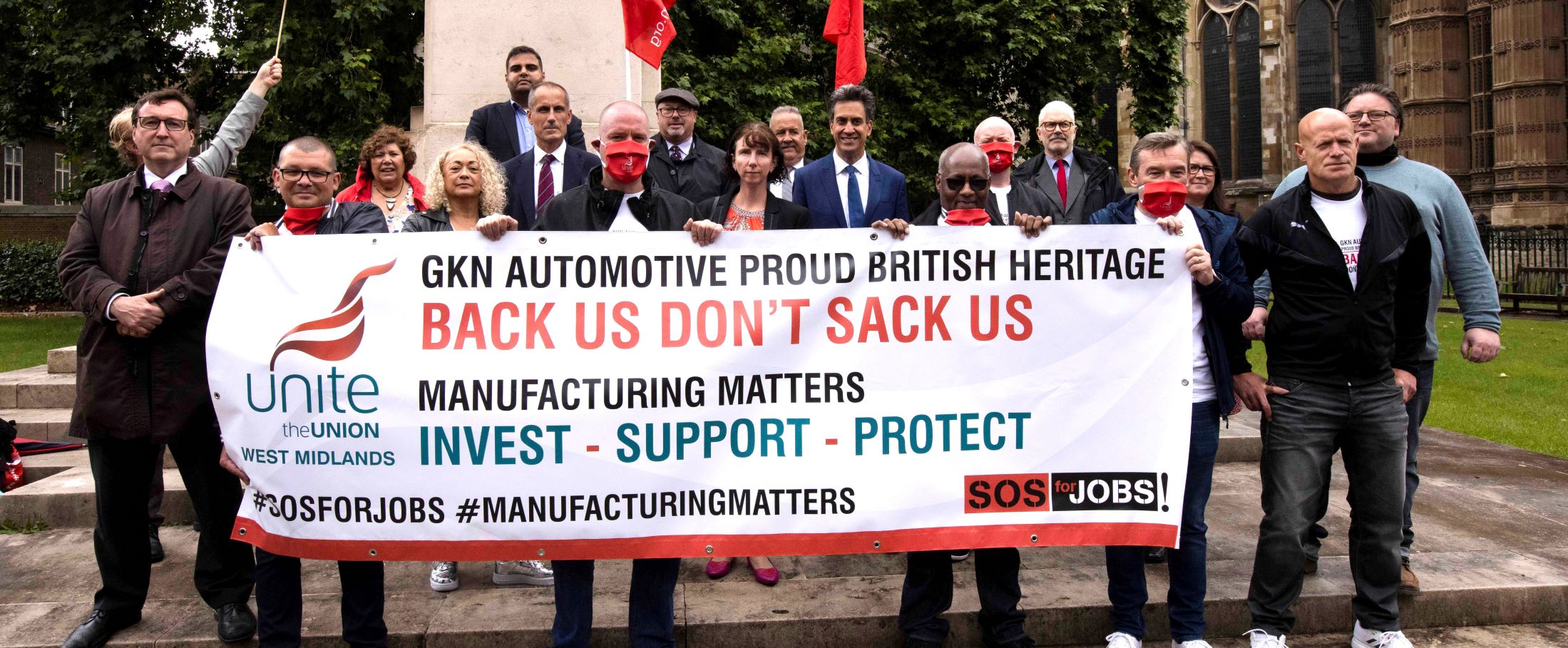Industrial strategy ‘in tatters’
When the present government first said it would adopt an industrial strategy – something the trade union movement had been talking about for years – Unite was thrilled, Unite assistant general secretary Tony Burke explained as he moved an industrial strategy motion today (September 11) at TUC conference.
“We heard lots sound bites, about the need to protect manufacturing, ensuring investment, high productivity, skill shortages would be a thing of the past and UK manufacturing would once again be the powerhouse of the economy,” Burke recounted.
“Well, we sat and waited, and waited; we even offered to meet the Secretary of State to give him our proposals. We developed our own manufacturing strategy which Labour were happy to adopt – but little came from the government.
“When the Tory document did get launched, it looked substantial,” he added. “But unfortunately that was because it was set in big type with lots of pictures and little in the way of substance. Since then, any pretence of a strategy has been abandoned.
“Congress, the Tories’ industrial strategy is in tatters.”
Failures
Burke highlighted the many ways in which the government has failed in its purported industrial strategy – from Bombardier when it “waved the white flag when it came under attack from Boeing” to Trump’s steel and aluminium tariffs when “the best [the government] could do was to despatch Liam Fox to the USA to clock up even more air miles – and as usual coming back empty handed.”
Burke pointed out too the case of security printers De La Rue, when the government failed to intervene to stop UK manufactured passports from leaving the UK.
He held up GKN as one of the latest examples of government failure on industrial strategy.
“GKN, a company that traces its engineering history back 250 years — it took 57 days before the Secretary of State called in the eventual purchasers Melrose — a financial engineering company to seek assurances from them about the future of the business,” he noted.
“Congress, nobody wanted that deal — not the workforce, not the aerospace and the automotive industries; it was opposed by MPs including some Tories, yet it was allowed to go ahead in the full knowledge Melrose would split it up and sell parts of the business on and make massive profits, not just from future sales but from the very acquisition of GKN itself.”
“Just five months on, parts of the GKN business are going up for auction and our members’ work is being transferred out of the UK,” Burke said.
He highlighted other failures such as scrapping the Swansea Bay Tidal Lagoon, three Royal Auxiliary ships now likely being built abroad instead of in the UK, and the apprenticeship levy, which has proved to be a disaster for some manufacturers.
Turning to what a robust industrial strategy should look like, he argued that “any industrial strategy truly worth the paper it is printed on would consider the big picture.”
That means, Burked continued, a strategy that includes infrastructure investment, in aerospace, science and in automotive, especially electric vehicles and future mobility, as well as sustainable energy needs.
He highlighted the importance of â€gold standard’ apprenticeships and the protection of foundation industries such as steel, as well as the support of small and supply chain companies as is done in Germany.
“It also means changing the rules of the game by reforming the takeover code to promote long-term thinking – and end short-termism and asset stripping such as we saw at GKN,” he added. “And finally, it means giving workers a strong, collective voice, by extending collective bargaining and a real voice at work.”
“Conference, when our forefathers met in this city 150 years ago they met at the cusp of the UK becoming the workshop of the world,” Burke noted. “This city along with many others echoed to the sound of manufacturing — they were at the very beating heart of the country.”
He warned conference that if the government is left to its own devices, “we will be waiting another 150 years.”
“So let us take up the cause and back a government committed to a real industrial strategy — a government that will use every lever at its disposal to support, defend and invest in UK industry and in decent jobs; jobs for the many not the few.”
The motion was overwhelmingly carried.
 Like
Like Follow
Follow

